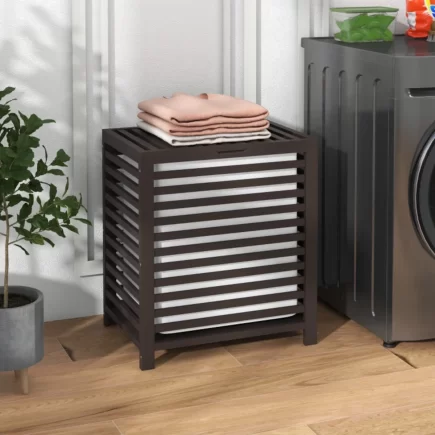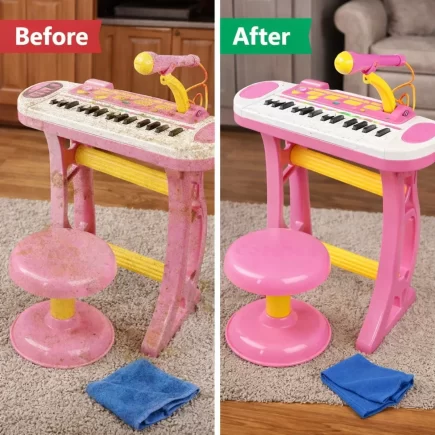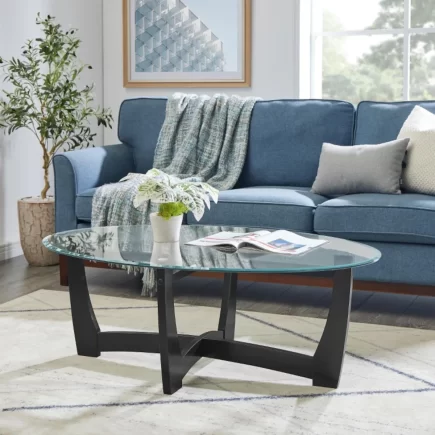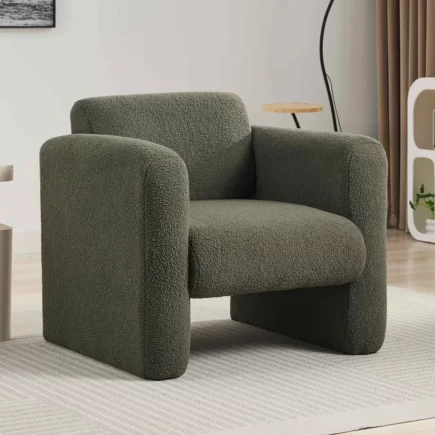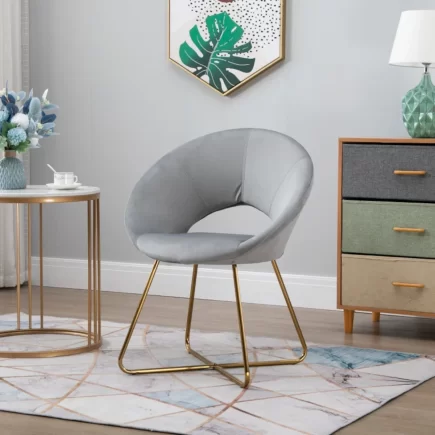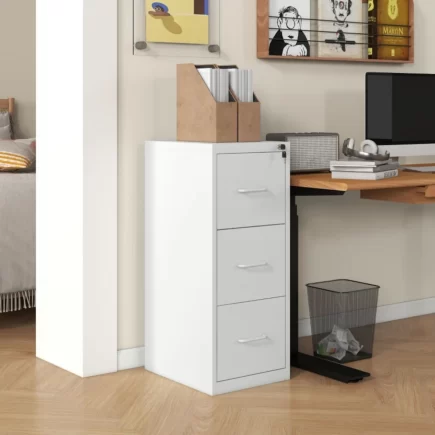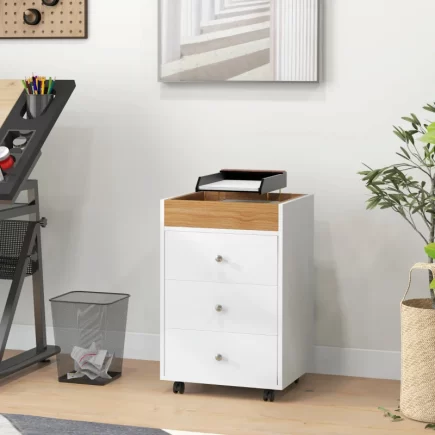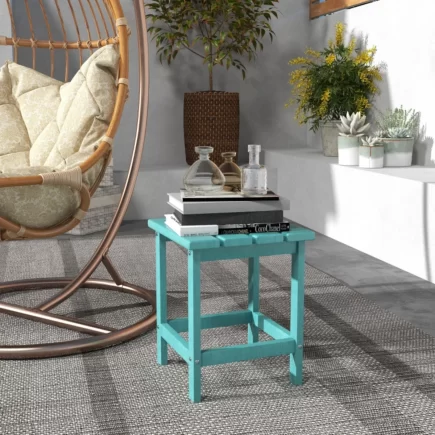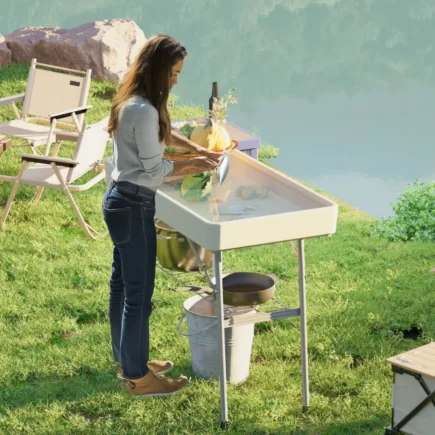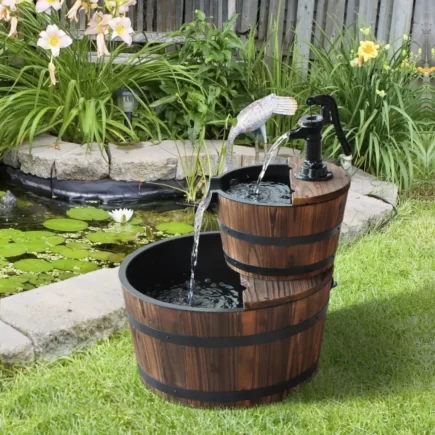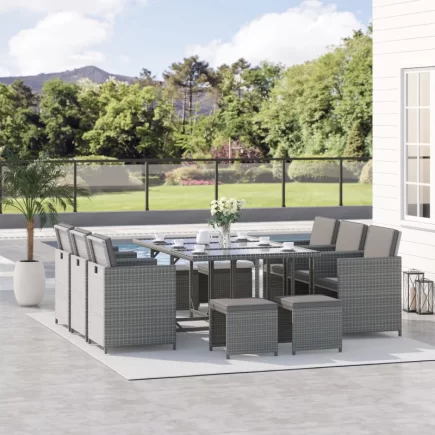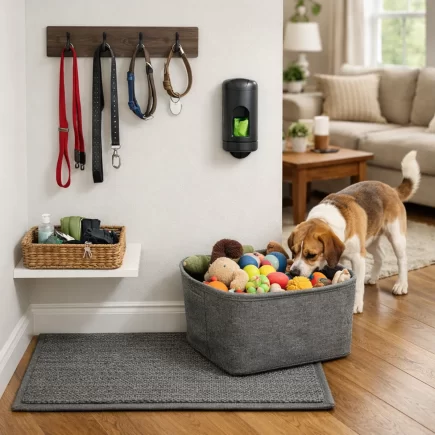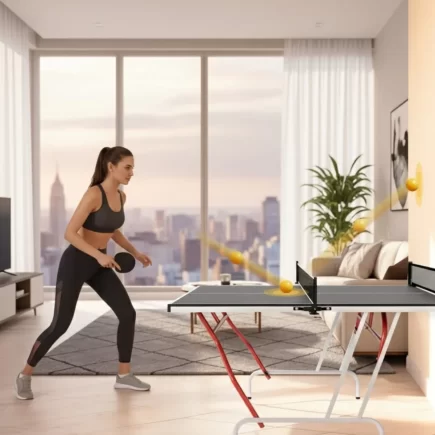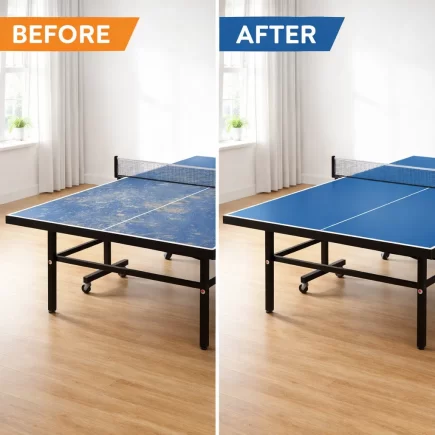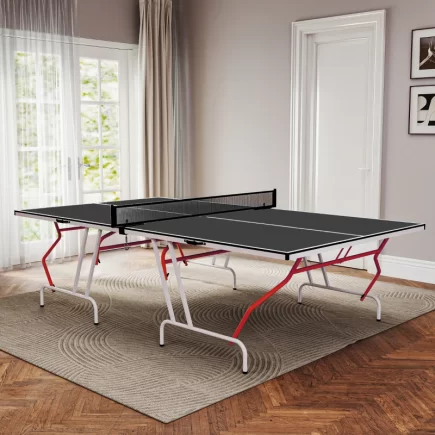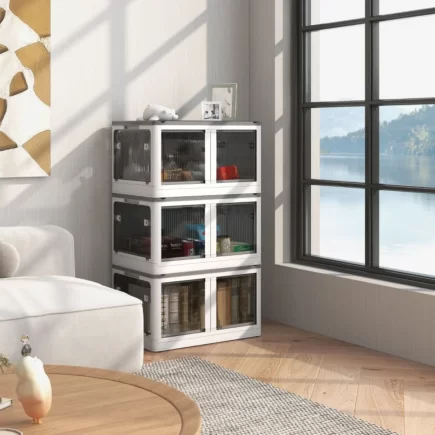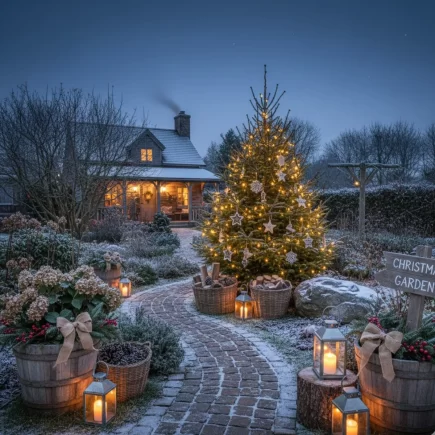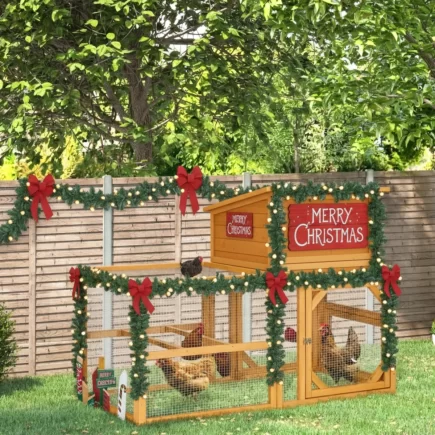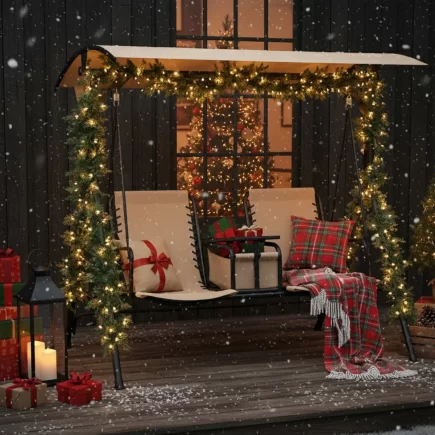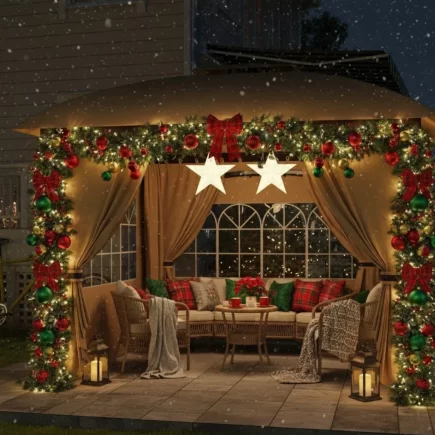End tables are often the quiet achievers in interior design. They reliably hold your morning coffee, keep your bedtime reads within reach, and serve as a catchall for life’s small daily essentials. Despite their usefulness, they’re frequently overlooked when decorating a space.

Attention tends to go first to larger elements like the sofa, the rug, or the lighting. But an end table offers more than just a practical surface; it’s a subtle yet powerful design feature. With thoughtful styling, it can reflect personality, bring visual balance, and add character to the room. It’s not about randomly placing a plant, a book, and a candle. It’s about creating a space that feels curated and meaningful.
7 Creative Ideas to Decorate an End Table
1. Layer for Depth and Balance

The goal is to layer items of varying heights, shapes, and textures while maintaining balance. Think of your end table as a mini vignette: you want visual interest from every angle. Here’s how to build that layered look:
- Height Variation: Incorporate objects of different heights to create a natural flow. If your lamp is tall, offset it with medium-height items like a small sculpture, and lower elements like coasters or a short bowl.
- Add Texture: Combine glass, wood, metal, and fabric finishes to add richness and contrast. A smooth ceramic pot paired with a distressed wood box and a metal photo frame can elevate even the simplest table.
2. Greenery or Florals

A touch of nature goes a long way. Plants and flowers (real or faux) add freshness, life, and softness to your tabletop arrangement. They also help bridge the visual gap between objects of different heights.
Opt for:
- A petite potted succulent for a modern look
- Dried eucalyptus in a ceramic jug for a relaxed vibe
- A single orchid stem in a glass vase for elegance
- A small trailing ivy or pothos in a woven basket
Greenery balances hard surfaces and instantly warms up a space. It can make even a very neutral end table look more vibrant and welcoming.
3. Use Books to Anchor and Elevate

Books are a stylist’s secret weapon. They provide height, context, and a perfect surface for displaying other objects. A few hardcover books with visually interesting covers or spines can be stacked horizontally to help anchor your décor and add depth to your design.
Good book topics to consider include:
- Interior design and architecture
- Fashion, photography, or art
- Nature, gardening, or travel
Top the stack with a unique paperweight, a candle, or a small decorative object to complete the look. Books not only add visual appeal but also offer a personal touch, elevating the style of any room.
4. Ground the Space With an Unexpected Base Element

We’re conditioned to start with a lamp. But what if you start with something different? Try grounding your end table styling with a bold, textural, or sculptural object instead of a traditional lamp.
Fresh base ideas:
- A chunky wooden pedestal bowl filled with hand-painted stones
- A cloche encasing a tiny figurine or keepsake
- A stack of small canvases or framed mini art leaning casually
- A short stack of vintage postcards tied with twine
This opening move establishes mood and invites layering without falling into formulaic design traps.
5. Break the “Odd Number” Rule
Interior designers love to preach that items should come in threes. But great design isn’t about rules; it’s about rhythm. Try styling with even numbers for a symmetrical, polished look or a single statement object for minimalism. One large bowl, a pair of candleholders, or a duo of figurines can have just as much impact.
- An artisanal ceramic sculpture
- A blown-glass orb with a unique interior swirl
- A slab of agate on a sleek metal stand
6. Mix Old with New
One of the most effective ways to create visual interest is by blending elements from different eras. The contrast between vintage and modern design introduces depth, texture, and character that feels both curated and unexpected. Instead of choosing pieces that are all from the same style or time period, allow opposites to work together in harmony.

For example, you might place a high-gloss, contemporary tray beside a weathered wooden candlestick. The shine of the tray draws the eye, while the rustic candlestick adds warmth and a sense of history. A mid-century clock resting on top of a stack of modern design magazines can strike the perfect balance between nostalgia and current trends. Even a simple combination like a sleek glass orb beside a vintage apothecary bottle can instantly elevate the table, making it feel thoughtfully styled.
This interplay of past and present not only creates visual contrast but also tells a story. It invites conversation and adds personality to the space in a way that purely matched pieces often cannot.
7. Go Seasonal Without Going Cliché

Seasonal decorating doesn’t have to feel obvious or overdone. Instead of leaning into predictable themes like piles of pumpkins in fall or glittery snowflakes in winter, focus on subtle details that reflect the essence of each season. This approach keeps your end table looking fresh, refined, and thoughtfully styled throughout the year.
Use materials, tones, and textures that capture the feeling of the season without overwhelming the space. Below are some tasteful ideas that add just the right touch:
Autumn
- Incorporate dried florals in rich burgundy, rust, or deep gold
- Use amber or smoked glass accents for warmth
- Add a ceramic bowl filled with acorns, chestnuts, or cinnamon sticks
Winter
- Choose decor with moody, matte textures like black or charcoal pottery
- Add natural wood pieces with a raw or weathered finish
- Layer in soft, dark-toned textiles such as wool or velvet coasters
Spring
- Display a simple vase with blossom branches or fresh greenery
- Introduce soft pastel ceramics or glass in blush, mint, or lilac
- Use lightweight linen runners or soft cotton mats in neutral tones
Summer
- Style with woven straw trays or baskets for a breezy look
- Add coastal elements like coral, driftwood, or shell-filled jars
- Keep the table light and airy with neutral or whitewashed accents
These seasonal updates should feel effortless. A small shift in colour, texture, or material is all it takes to reflect the changing time of year without making the table feel overly decorated or theme-heavy.
Involve Art Without Hanging It
Art doesn’t always need to be framed or placed on a wall to make an impact. A thoughtfully chosen object placed directly on your end table can express just as much creativity as a painting or photograph. Consider using sculptural pieces or handmade pottery that add both form and texture to the space.
Look for pieces that are not only visually striking but also interactive or functional. Items like a carved wooden sphere, a handcrafted ceramic bowl, or a folded metal accent can act as focal points while inviting touch or movement. These artistic touches add a gallery-like feel to your end table, showing off your eye for detail and appreciation for design in unexpected ways.
Let It Evolve Weekly
Styling an end table doesn’t have to be a one-time decision. In fact, allowing it to evolve over time keeps the space feeling fresh, personal, and responsive to your daily life. Rather than aiming for a static arrangement, treat your end table like a creative surface that adapts to your mood, the season, or even your week’s inspiration.
Try incorporating small changes that reflect what you’re currently enjoying or focusing on:
- Swap in a new object each Sunday to reflect the start of a new week
- Follow a light monthly theme, such as “Natural Textures” or “Soft Neutrals.”
- Invite guests to contribute a small item, creating a collaborative and ever-changing display.
By letting your end table grow and change, it becomes more than a decorative piece. It becomes a reflection of your lifestyle, creativity, and evolving taste.
Your Table, Your Voice
End Tables styling isn’t about following trends; it’s about giving a quiet piece of furniture something to say. Whether it whispers elegance, sings creativity, or hums comfort, make it yours. Use it to tell a story no one else can. Because when you decorate with intention,n not perfection, you turn your home into a space that speaks. And that’s what great design is really about.
FAQs
1. How can I make mismatched end tables look cohesive?
To unify mismatched end tables, use a shared colour palette, similar materials, or consistent styling elements. Matching accessories like lamps or trays help bridge the gap. Keep heights similar and incorporate complementary textures or shapes to create a visually balanced and harmonious look.
2. What are the biggest mistakes people make when styling an end table?
Common mistakes include overcrowding, ignoring scale, using clashing materials, and neglecting lighting. Poorly balanced items or décor that lacks function can also make the table feel cluttered or disconnected from the room. Aim for proportion, purpose, and a cohesive style to avoid these pitfalls.
3. Are there rules for mixing materials like metal, wood, and glass on one table?
Yes, mix materials thoughtfully by choosing one dominant material and supporting it with complementary textures. Keep to a consistent colour scheme and balance visual weight. Combine smooth and rough finishes to add depth, and avoid overcrowding to maintain a clean, cohesive look.
4. What’s a smart way to style an end table in a small apartment?
In small spaces, prioritize function and minimalism. Use a compact lamp, a tray for essentials, and one or two decorative accents like a plant or candle. Choose end table that is multi-functional, keep surface clutter low, and maintain visual balance with varied heights and textures.

